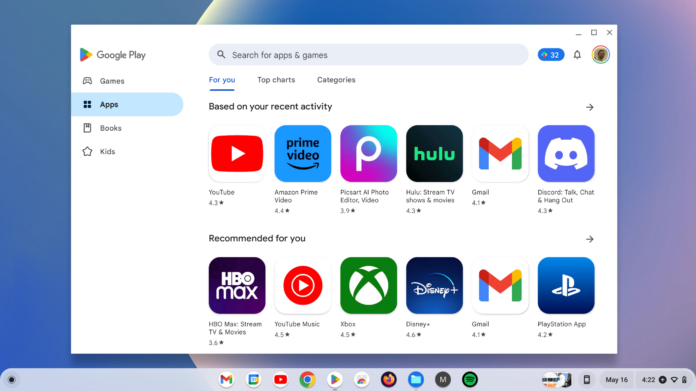Google is reportedly working on a groundbreaking project to merge ChromeOS with Android, aiming to reshape the tablet landscape and challenge Apple’s iPad dominance. This ambitious effort could unify Google’s operating systems, streamline development, and create an ecosystem that thrives on both laptops and tablets.
Let’s delve into what this transformation could mean for the tech world, how it might affect the competition, and why AI could play a pivotal role in this evolution.
A Unified OS: ChromeOS Meets Android
The Rumor: A Game-Changing OS Integration
Sources at Android Authority suggest that Google is working on a multi-year project to merge ChromeOS and Android into a single platform. This hybrid operating system would combine the desktop-friendly interface of ChromeOS with the mobile versatility of Android, catering to tablets and laptops alike.
For years, Google has juggled two distinct platforms: ChromeOS, ideal for laptops and 2-in-1 devices, and Android, dominant in smartphones but less successful in tablets. A unified OS could eliminate redundancies, allowing Google to focus its development resources more effectively.
Why This Matters
Addressing the Tablet Problem
Google’s tablet strategy has struggled to capture market share, particularly in the premium segment where Apple’s iPad reigns supreme, holding over 55% of the global market. Hybrid Chromebooks have also failed to gain significant traction. By combining ChromeOS and Android, Google could create a seamless experience that appeals to tablet users and 2-in-1 device enthusiasts.
Leveraging AI for Competitive Edge
Artificial Intelligence is at the heart of Google’s strategy. Recent developments in 2024 already show parts of Android OS being integrated into ChromeOS, including Android frameworks and the Linux kernel. This integration is designed to support AI-powered features that enhance user experiences on Chromebooks.
With an AI-infused OS, Google could deliver advanced functionalities, such as:
- Personalized productivity tools
- Smarter multitasking features
- Improved performance for creative applications
Potential Hardware: A Pixelbook Revival?
The Return of the Chromebook Pixel
Another exciting rumor suggests that Google might revive its discontinued Pixelbook series, using the new Android-based OS. The Pixelbook, known for its sleek design and premium build, could become the flagship device showcasing this innovative platform.
Features to Anticipate:
| Feature | Possible Inclusion |
|---|---|
| AI-enhanced tools | Personalized suggestions, predictive typing, etc. |
| Desktop experience | Optimized UI for larger screens and external devices |
| Seamless updates | Improved integration with Google’s ecosystem |
A Pixelbook running on a desktop-friendly version of Android could compete directly with the iPad Pro and Microsoft Surface, both leaders in the premium productivity space.
Implications for the Tech Industry
Competitive Landscape
By unifying its operating systems, Google could challenge Apple and Microsoft more effectively:
- Apple: The iPad’s dominance could face pressure, especially in markets where affordability and flexibility are key.
- Microsoft: Surface devices, particularly 2-in-1 laptops, could lose ground to Google’s more versatile hybrid solutions.
Developer Benefits
For app developers, a single OS means reduced complexity. Apps optimized for the new Android-ChromeOS platform would work seamlessly across smartphones, tablets, and laptops, encouraging more robust software ecosystems.

Challenges Ahead
Early-Stage Development
This project is still in its infancy. Google’s exact plans remain unclear, and internal development hurdles could delay or alter the initiative’s trajectory.
Market Adoption
Convincing users to embrace a new platform will be critical. Google must demonstrate the value of this unified OS through superior performance, user-friendly features, and competitive pricing.
Why Now?
Timing Is Everything
Google’s move aligns with broader industry trends:
- AI Integration: With AI becoming central to tech innovation, Google is positioning itself to lead the charge.
- Increased Competition: As Apple and Microsoft expand their ecosystems, Google needs a bold strategy to stay relevant.
Conclusion: A New Era for Tablets and Beyond
Google’s plan to merge ChromeOS and Android represents a strategic shift that could redefine its role in the tech ecosystem. By creating a unified platform powered by AI, Google aims to deliver a versatile, high-performance OS capable of rivaling the iPad and Surface.
While challenges remain, this initiative signals a promising future for tablets, 2-in-1 devices, and the broader tech industry. If successful, it could mark the beginning of a new era where Google not only competes but potentially leads in the premium device market.



